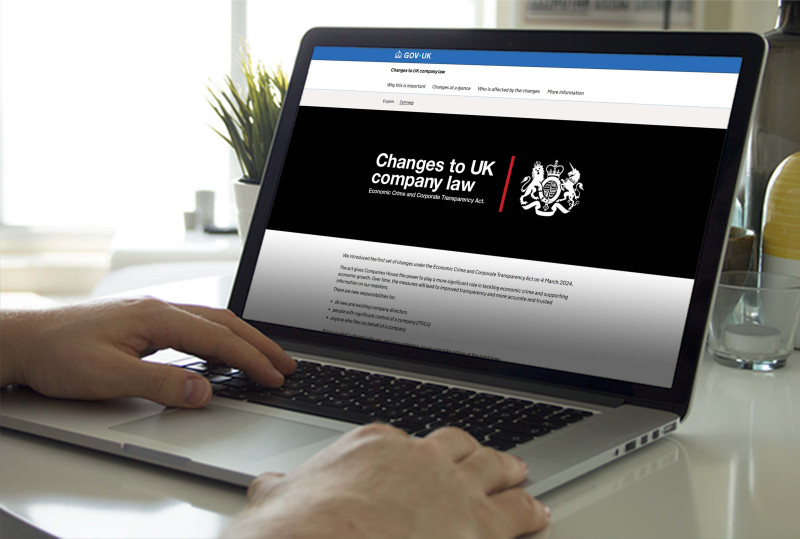news & events
Stay up to date with the latest legal insights, LP news, and upcoming firm events.
Insights & Updates
Stay informed with our latest legal insights.


Supreme Court ruling set to impact NHS - Children injured by NHS can claim damages for lifetime lost earnings
In February 2026, the Supreme Court passed a ruling which is set to significantly increase the amount of damages the NHS may have to pay for claims brought in respect of children injured at birth, as a result of medical negligence.

.jpg)

The Value of Planning Ahead: LPAs & Court of Protection
Putting LPAs in place allows you to choose trusted people to make decisions for you if you lose capacity in the future. This avoids the need for loved ones to make a costly and time-consuming deputyship application to the Court of Protection. With more people likely to experience conditions affecting capacity, more families may need to turn to the Court for support where no LPAs are in place.



The case of the fake cases: another judgment on AI-hallucinations in litigation
The use of AI Large Language Models in litigation continues to generate headlines (and consternation from the judiciary). In 2025, it seemed that rarely a month went by without a new case on fake AI-generated case law. December was no exception, and the High Court has now issued a further warning regarding the use of AI by litigants.



Autumn Budget 2025: Agricultural Property Relief & Business Property Relief Changes
It was announced in the 2025 Budget that from 6 April 2026, changes will be made to agricultural property relief and business property relief. These changes bring APR and BPR in line with the nil-rate band rules, meaning unused allowances can be transferred to a surviving spouse or civil partner. This is a significant step towards making estate planning easier for families who own farms or businesses.
.jpg)


The Employment Rights Act 2025 is expected to come into force tomorrow (18 December 2025)
After an extended period of back-and-forth amendments between Parliament and the House of Lords, on 16 December 2025, the ERB finally received approval from the House of Lords, with the formality of Royal Assent due to take place tomorrow (18 December 2025). Head of LP Employment, Dan Chapman, explains...



Commercial Lease Renewals: A guide for Landlords & Tenants
Commercial lease renewals are a topic that every commercial landlord and business that rents commercial premises should have at the forefront of their minds. It is essential for good succession planning, though it is often neglected until the expiry of an existing lease term is looming or once the existing term has come to an end and the tenant is holding over. In this article, our newly qualified solicitor, Maggie Berry explores the process that landlords and tenants can expect when navigating this complex area of law.



Our Guidance, Your Legacy: What is a Will, and why should I make one?
Not only is a Will one of the most important steps you can take to protect your loved ones and ensure your wishes are respected, but it also limits the likelihood of a claim/dispute following your death. To ensure your loved ones and the causes you care about benefit from your estate, a Will is essential to ensuring this happens. Find out more in this article.



Lease extensions: The essentials to getting started
Extending your lease can seem complex, but taking the right steps early can make the process much smoother. Jake Mowatt, Associate and Harry Smith, Trainee Solicitor in our Residential Property Team outlines the key essentials every leaseholder should understand prior to extending their lease.



Upcoming changes to bringing employment law claims: What these mean for you
The highly anticipated Employment Rights Bill (ERB) is set to increase the time limits in which employees can bring an employment tribunal claim. Gareth Stevens & Rose Woolterton explain what this means for employers & employees.



Service Charges in Residential Leases: FAQs
Service charges are forever a hot topic in the world of property disputes, and it remains one of the most contentious areas between freeholders and leaseholders, particularly in long residential leases. Danny Turpin, Associate, discusses frequently asked questions regarding service charges on long residential leases.



Jess’s Rule – New Guidelines for GPs
A new initiative is being rolled out across GP practices across England in the hope of preventing serious illnesses being missed by GPs where patients present with the same, or deteriorating, symptoms on multiple occasions. Kimberley Nelson in our Personal Injury & Clinical Negligence Team discusses new guidelines for GPs.

.jpg)

Staff mileage claims: What you should be reimbursing staff driving electric vehicles (EVs)
As of 1 September 2025, you might be overpaying mileage for staff driving electric vehicles. James Conley discusses the change in mileage rates for electric vehicles and how this will affect staff mileage claims.



Potential changes to England and Wales driving laws
England and Wales could be facing a huge shake-up in motoring laws as changes are being considered which include the introduction of eye tests for over 70’s and lowering of the alcohol threshold from 35 micrograms to 22 micrograms, Matthew Swash, Partner, discusses these possible new changes.



Understanding the Government’s proposal to ban upwards only rent reviews in commercial leases
A major shift in the commercial leasing landscape may be on the horizon. As part of broader reforms to boost the UK’s struggling high streets and create a fairer rental market, the Government has proposed to ban upwards only rent review provisions in new business tenancies in England and Wales. Rebecca Millard, Senior Associate, explains implications if the ban is implemented.



The ‘Silent’ Shares: What are Treasury Shares, and how should they be recorded?
While rarely headline-grabbing, the confirmation statement is one of the most important statutory filings a company makes each year. In this article, Milan Pandit discusses how "treasury shares" should be reflected in a company's confirmation statement and what the consequences can be if overlooked or incorrectly excluded.



Intestacy: Common Misconceptions
When a person dies without a valid Will, the rules of intestacy will determine who is entitled to administer and benefit from the estate. The Intestacy Rules operate on a priority order, working through the deceased’s family tree until they identify the closest surviving relatives to inherit. Georgia Sands discusses common misconceptions surrounding the Intestacy Rules.



Income Tax Reporting Requirements for Estates
When someone passes away, their Personal Representatives become responsible for taking control of their assets, settling the taxes and expenses of the estate and distributing the remaining assets in accordance with their Will, or the Intestacy Rules. Due to inflation and rising interest rates, more estates will be required to complete income tax reporting to HMRC, Billy Coughlin explains.

%20-%20A%20viable%20alternative%20to%20Charity%20Formation_.jpg)

Community Interest Companies (CIC) - A viable alternative to Charity Formation?
CICs are limited companies which operate to provide a benefit to the community they serve. Although the fear of the unknown, amongst other reasons, impacted adversely on its adoption by socially-focussed organisations, recent reports suggest that it is increasingly becoming a viable alternative to charities, Ejike Ndaji explains.



Upcoming Changes at Companies House: New Identity Verification Rules
Recently 11,500 companies at Companies House were struck off after it was suspected they were used for organised crime. Companies House is taking a stronger stance to ensure only legitimate businesses are active, making compliance with new verification rules crucial. Hugo Persad explains the upcoming changes in our latest article...

Lp News
Stay up to date with our latest LP news including industry insights, charity partnerships, and staff achievements.


Charity of the Month: Sue Lambert Trust
Leathes Prior is delighted to be supporting the Sue Lambert Trust as our Charity of the Month for February 2026. Sue Lambert Trust is a leading charity in Norfolk offering free therapeutic counselling and support services to survivors of sexual violence and abuse.



Charity of the Month: The Matthew Project
Leathes Prior is delighted to be supporting The Matthew Project as our Charity of the Month for December 2025. The Matthew Project supports young people and adults across Norfolk, Suffolk, and Essex to overcome issues around drugs, alcohol, and mental health, empowering them to rebuild confidence and lead fulfilling lives.



Leathes Prior’s Milan Pandit appointed President of the Norfolk & Norwich Law Society
Leathes Prior Solicitors is proud to announce that Milan Pandit, Solicitor in our Corporate & Commercial Team, has been appointed President of the Norfolk & Norwich Law Society (NNLS) for 2025/26.



Leathes Prior winners in nine categories in the prestigious Legal 500 Future Laywer Survey
We are thrilled to announce that the firm has placed once again in the Legal 500 Future Lawyer survey as No.1 in the UK for our Social Life; a ranking we have held in the survey for seven years out of the past nine years.



Leathes Prior are excited to announce that four Trainee Solicitors qualify at the firm
Leathes Prior is excited to announce that four of our amazing trainees, Eleanor Chapman, Maggie Berry, Alex Robinson, and Georgia Sartin, have successfully completed their training contracts and are now qualifying as Solicitors at the firm.



Charity of the Month: East Anglian Air Ambulance
Leathes Prior is delighted to be supporting East Anglian Air Ambulance as our Charity of the Month for August 2025. East Anglian Air Ambulance (EAAA) delivers lifesaving critical care for 24 hours every day of the year, supporting the region’s most seriously ill and injured people, covering Bedfordshire, Cambridgeshire, Norfolk, and Suffolk via air and road.



Our Charity of the Month - Little Lifts
Leathes Prior is delighted to be supporting Little Lifts as our Charity of the Month again for July 2025. For those unfamiliar with Little Lifts, they are a Norfolk-founded charity dedicated to supporting individuals with breast cancer by spreading strength, one wonderful box at a time. With over 32,500 boxes already delivered, their impact is growing every day.



Leathes Prior announces retirement of two longstanding colleagues
This month, Leathes Prior sees two of our longest-standing colleagues retire, after an incredible combined service of over 85 years at LP! Penny Johnson and Lynsey Payne will both retire later in July, having each played huge roles in providing excellent legal support and beyond to many teams across the firm over the years.



Charity of the Month: Break
With the launch of the GoGoSafari trail this month, we are thrilled to be supporting Break as our Charity of the Month for June 2025. The work that Break does to support children and young people on the edge of care, in care, and leaving care is so important and impactful on the lives of those they support.

Our Events
See all of our LP events, including seminars & celebrations.

Modern Employer Seminar 13 - Unlucky For Some
The 13th in our series of Modern Employer, employment seminars. Hosted at Top of the Terrace, NCFC.
























